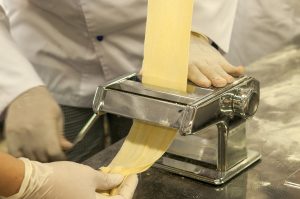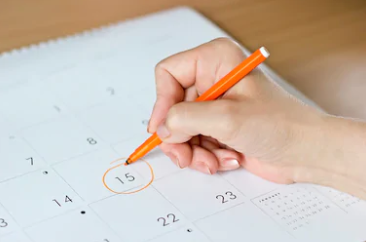There’s a big misconception out there that if you learn to play the piano, you have to do piano exams.
This is not true.
There’s another misconception that you can determine someone’s ability at the piano simply by knowing what grade of exam they have passed.
This is also not true.
Let me say upfront that I am not against piano exams and I actually quite like them under the right circumstances. Some of my students have had great experiences with exams and they look forward to doing them because they are working at levels that are correctly matched to their abilities. Exams can be a great learning tool for the right student, motivating them to work hard to do well.
But exams are not for everyone, and I find it to be a real shame when students are forced into a process which can turn their enjoyment of piano into quite the opposite.
My Exam Philosophy
My view of exams is pretty simple when it comes to performance exams at an Elementary to Early Intermediate level.
I will only consider entering a student for a graded exam if I believe they satisfy at least two important criteria:
- They have most of the requisite technical and expressive skills needed to play the repertoire prescribed for that grade, and they are already playing similar pieces at that grade level
- They have already developed a solid practising habit and will not need to “amp” up their practising too dramatically in order to do well
The first point is important because I don’t believe in my students spending a full year learning only three or four pieces of music (the required number of pieces for an exam) without doing anything else, which can happen if they aren’t really competent at a certain grade. In my opinion, an exam is supposed to be an assessment at a point in time of where a student’s general ability is. If it takes them an inordinate amount of time to learn and polish pieces for an exam, then they’re probably not quite ready for that grade. At the Grades 1 – 3 levels, an ideal timeline for preparing pieces from start to finish would be around four months, for those who are truly ready. There is so much fantastic repertoire out there for students to be exploring, and to only play four a year because they’re struggling with concepts or requirements too difficult for them only hinders their actual ability to progress.
Not every piano teacher takes this type of approach towards exams. Therefore, a student who has done a particular grade of exam with one teacher may not have the same knowledge or skill as another student who has passed the same grade learning with another teacher. It can give you a broad, general idea of a student’s ability to play some pieces, but it isn’t necessarily a given that they can pick up a brand new piece of music at that level and be able to understand it and play it comfortably and faithfully.
The second criterion requiring a solid practising habit is to minimise the risk that the exam experience will ruin music enjoyment for the student. If a child is practising infrequently and then all of a sudden find themselves being nagged at to practise every day, there is a high chance that they will start to resent the fact that piano practise is taking them away from other activities. Saying “yes” to a piano exam means saying “no” to other things because you have to dedicate consistent time and effort to practising for that exam.
Exceptions
Of course, there is always that one student who has the potential and the passion for piano, but just hasn’t applied themselves diligently. Giving this type of student the goal of an exam to work towards can very well be the thing that gets them into gear and makes them take piano more seriously of their own volition. However, I find that this only really works if they truly like playing the piano to begin with (i.e. haven’t been forced into learning it), and only if they care about achieving a good result.
If Not Exams, Then What?
As a piano teacher, there is so much I want to share with my students and a one hour lesson once a week is barely enough time to do about 75% of what a student could possibly learn. Once exams are brought into the mix, there’s even less time to do it all.
When a student is not preparing for an exam, there is more room to provide a tailored learning experience as we can really explore a student’s interests and focus our attention on those things that make them want to go home and head straight to the piano after a lesson.
For one student, this could mean exploring jazz improvisation, and for another it could be intensive chord studies so they can learn to accompany themselves while singing. The possibilities are wide-ranging and the rewards are aplenty when you see students in a complete flow state during their lessons. These lessons often end with an exclamation of “already?!” when I tell them that it’s time for them to go home!
A student who hasn’t done an exam but who loves to learn and play can play just as well, if not even better, than a student who learns strictly to an exam syllabus. Ultimately, it comes down to how much time and effort the student (and parents) want to put into piano which determines how well a child can play. It’s promising that many parents today see the value of learning the piano as a lifelong skill, and not just as a hobby for competing with peers through exams. Progress and success can still be measured in the absence of graded exams, as long as parents and teachers are clear on what those markers of progress are. Exams are useful and excellent focus tools, but are by no means absolutely essential for every piano student.
Here are three videos of different students playing in my studio. They all play well and each has different strengths and tastes in music. Only one of them has ever done a piano exam, and I don’t think you can really tell who has done what. The most important thing is that they all come to lessons each week eager to learn and they truly enjoy playing. They weren’t told in advance that they would be recorded so you’ll see some candid reactions and stumbles but that was all part of the fun of recording and they were good sports to just go with it!

 It’s like learning to play tennis. You don’t have to compete in a tournament to develop a killer forehand. Similarly, you can be a great cook without putting yourself forward to be judged on MasterChef. Exams are a way to externally evaluate your skills but they’re not a must for every learning journey. In fact, piano exams can often be detrimental to a student’s enjoyment of piano to the extent that they give up playing altogether.
It’s like learning to play tennis. You don’t have to compete in a tournament to develop a killer forehand. Similarly, you can be a great cook without putting yourself forward to be judged on MasterChef. Exams are a way to externally evaluate your skills but they’re not a must for every learning journey. In fact, piano exams can often be detrimental to a student’s enjoyment of piano to the extent that they give up playing altogether.
